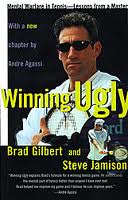Being able to focus your attention properly on the task at hand is the essence of concentration. You would think that with all of the effort put into training for and arriving at a tournament, it would be easy to let fencing be the top priority and have the rest of the world melt away while you focus on your bouts. Unfortunately, that doesn’t happen for everyone.
Given all of the obligations that tug on us each day, how can you force the outside world out and immerse yourself in perfecting your fencing and your next bout?
There are two types of distractions: internal and external. An internal distraction is what goes on in your mind, such as trying to think about too many things at once. An external distraction is what happens around you, such as a driver who drifts into your lane. Both can be a big bother when you are trying to fence.
Concentration is being able to focus attention properly on the task at hand. When there are many things going on at once, concentration requires being able to make quick and accurate decisions about our immediate priorities.
Here’s a classic example: You’re walking down the hallway and there’s a big box blocking the way. You think to yourself, “Don’t bump into the box.” Sure enough, you inadvertently bang your leg against the box. “Stupid box!” you yell. Was it the box’s fault? No, you’re the one who walked into it, even though you told yourself not to. How did that happen?
Surprisingly enough, concentration is not about blocking out distractions. By reminding yourself not to think about something in particular, you are actually dedicating your attention to it! Rather than thinking what you need to do, such as “Walk around the box,” you were unintentionally focusing on it. Your body did what the brain told it to do- bump into the box. Even by including the word “not” in your command, you are still saying what shouldn’t be done.
It’s the same thing with fencing. For instance, you may be at a tournament, and the ref makes a call that you disagree with. Or maybe you have weapon problems all day. This weighs on your mind all day, even though you keep telling yourself not to think about it. As a result, your fencing suffers.
So how do we deal with so much happening at once while trying to perfect our abilities in a complex and highly competitive sport?
- Fence and nothing else.
Don’t bring anything outside of fencing with you to practice and/or a tournament. If you can’t get that particular thing done without bringing it with you, then you shouldn’t be at practice or that tournament. Manage your time wisely. - Find that “one thing.”
Trying to focus on too many things at once can cause your focus to scatter, and you may end up not being able to focus on anything at all! Progressively bring your focus down to “one thing.” Ask yourself, “What’s Important Now?” (or W.I.N.). Answer honestly: what is the most important thing at this immediate moment? Pour all of your concentration into that “one thing”.Instead of being flustered by arguing with the ref and throwing your weapons, you could instead focus on your own fencing actions. Repeat cue words (short, specific phrases) in your head to reinforce that “one thing.”
- Practice concentration drills.
You can learn to sharpen your concentration with these simple drills. The first two are best if you are bothered by internal distractions, and the third is best if you are bothered by external distractions.- Focus on your breathing. Inhale by expanding your belly out and exhale by pushing your belly in. Make smooth, slow breaths and totally concentrate on your breathing cycle for two minutes.
- A similar exercise is sitting very quietly and paying attention to your heartbeat. See how long you can simply focus on this before your mind starts to wander.
- Sit between two stereos that are playing music at the same volume at the same time. Listen alternately to one piece for 10 seconds and then switch to the other.
- Focus on what TO do!
As any experienced parent or teacher would tell you, if you tell a kid not to do something, they will do it out of spite. Adults are no different. There are many situations in which you will tell yourself over and over in your head not to do something. What you are really telling yourself is that very thing, over and over again. Without using negative words such as “don’t”, instruct yourself to DO something.A fencing example would be instead of saying, “Stop hitting off-target,” say “Get your point on! Connect with the target!”
Focus and concentration are skills that we already possess. It doesn’t take an exceptionally amazing person to be able to concentrate at high levels. Being distracted by internal or external factors is a fixable situation, as long as you are willing to work at it by controlling what you are in charge of. Through practice, you will be able to strengthen your concentration, which in turn can enhance your competitive fencing performance.
Reference
USMA Center for Enhanced Performance. (2006). Handout – Attention
Control Protocol #1-4. West Point, New York: United States Military Academy, Center for Enhanced Performance.



